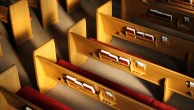Scholars of religion in the United States have been using the term “nones” since the 1960s, despite some qualms about its connotations. The term refers to people who answer a survey question about their religion by saying they have no religion, no particular religion, no religious preference, or the like. As sociologist Glenn Vernon of the University of Utah wrote in the Journal for the Scientific Study of Religion in 1968, “It provides a negative definition, specifying what a phenomenon is not, rather than what it is. Intentionally or not, such a use implies that only those affiliated with a formal group are religious.”1
Because of such misgivings, the Pew Research Center’s Forum on Religion & Public Life has used – and will continue to use – “religiously unaffiliated” as our preferred term for Americans who tell us in surveys that they are atheists, agnostics or have no particular religion. “Nones,” however, has become a popular label for the same population, used not only in social scientific journals but also by the media, including on the cover of Time magazine and Page One of USA Today.2 As a result, in this report we use both terms interchangeably, but we put “nones” in quotation marks to indicate that it is a colloquialism. More importantly, we emphasize that the absence of a religious affiliation does not necessarily indicate an absence of religious beliefs or practices. On the contrary, as the report makes clear, most of the “nones” say they believe in God, and most describe themselves as religious, spiritual or both.
To delve more deeply into the theological, social and political views of the large and growing number of Americans who have no religious affiliation, the Pew Forum partnered with the acclaimed PBS television program Religion & Ethics NewsWeekly, hosted by veteran journalist Bob Abernethy and produced by Thirteen/WNET New York. Together with the show’s executive producer, Arnold Labaton, its managing editor, Kim Lawton, Web editor Missy Daniel and other members of its staff, we developed several survey questions aimed specifically at the “nones.” We placed these questions on the Pew Research Center’s summer 2012 Religion and Politics Survey, augmenting our sample of religiously unaffiliated Americans with more than 500 additional survey interviews, for a total of 958 unaffiliated respondents. In addition, the Pew Forum analyzed data from previous surveys by the Pew Research Center and other polling organizations on the rise of the “nones” and related trends in American religion.
The primary researchers for this report were Pew Forum senior researchers Greg Smith and Cary Funk. The fieldwork for the new survey was carried out by Princeton Survey Research Associates International. We are grateful to our colleagues at Religion & Ethics NewsWeekly for their strong interest in the “nones” and their many contributions to our joint survey. We would also like to thank John Green of the University of Akron and David Campbell of the University of Notre Dame for their helpful advice in the development of the survey.
While the survey design was guided by the counsel of our advisers, contractors and consultants, the Pew Research Center is solely responsible for the interpretation and reporting of the data.
Luis Lugo, Director Alan Cooperman, Associate Director, Research
Footnotes:
1 Vernon, Glenn M. 1968. “The Religious ‘Nones’: A Neglected Category.” Journal for the Scientific Study of Religion, vol. 7, no. 2. (return to text)
2 Sullivan, Amy. March 12, 2012. “The Rise of the Nones.” Time magazine. http://www.time.com/time/magazine/article/0,9171,2108027,00.html. See also Grossman, Cathy Lynn. March 9, 2009. “Almost all denominations losing ground, survey finds; Faith is shifting, drifting or vanishing outright.” USAToday. http://www.usatoday.com/printedition/news/20090309/1areligion09_cv.art.htm. (return to text)




